
What is NonProbability Sampling? SurveyLegend
Non-probability sampling (sometimes nonprobability sampling) is a branch of sample selection that uses non-random ways to select a group of people to participate in research. Unlike probability sampling and its methods, non-probability sampling doesn't focus on accurately representing all members of a large population within a smaller sample.
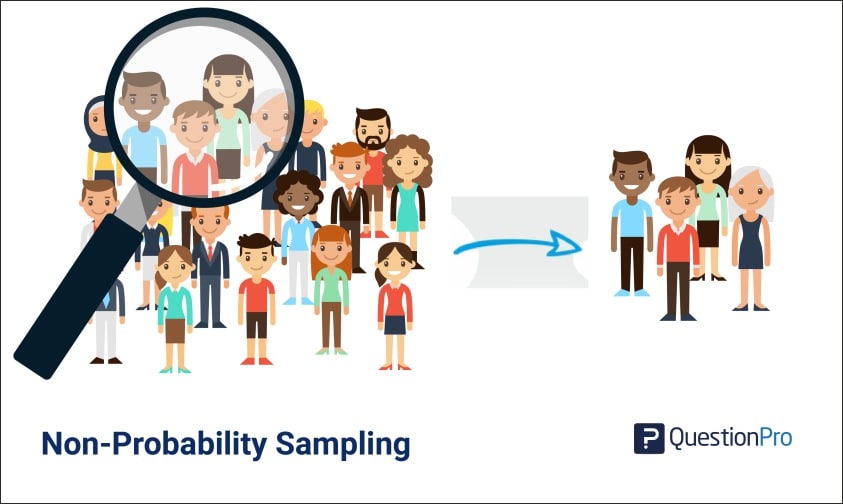
NonProbability Sampling Definition, Methods and Examples
Non-probability sampling methods. In a non-probability sample, individuals are selected based on non-random criteria, and not every individual has a chance of being included. This type of sample is easier and cheaper to access, but it has a higher risk of sampling bias. That means the inferences you can make about the population are weaker than.
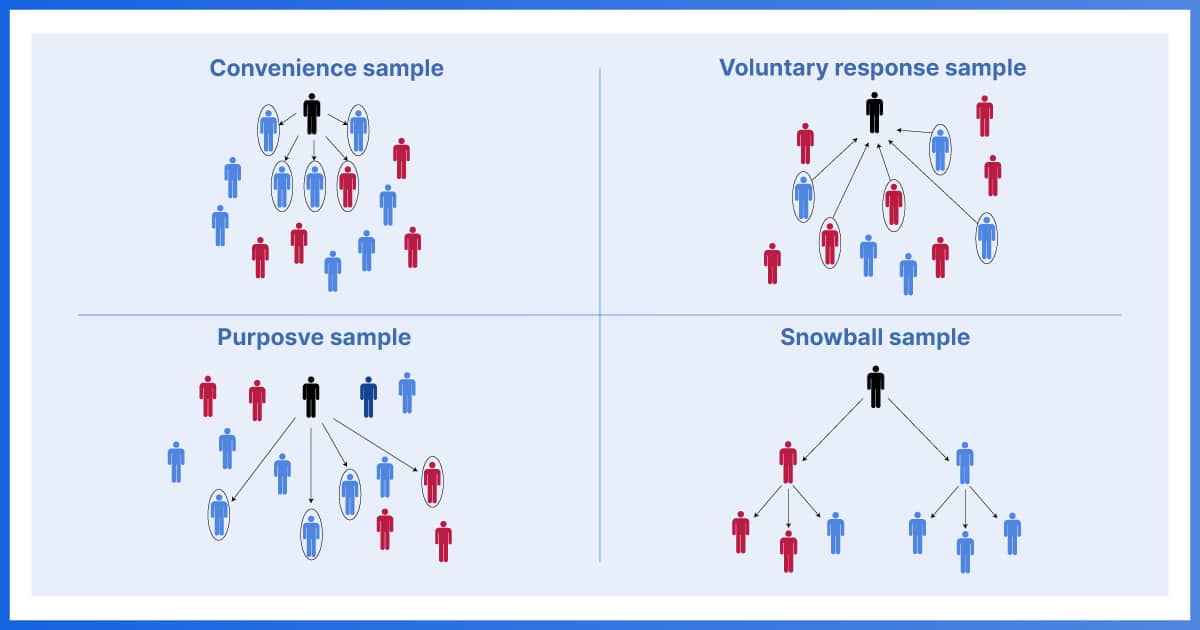
NonProbability Sampling
Non-Probability Sampling Definition. Non-probability sampling methods recognize that not everyone will have the chance to take a survey. This is the opposite of probability sampling, which aims to ensure that everyone in the population has an equal chance of receiving a survey. To better understand the difference between non-probability.

NonProbability Sampling Types, Examples, & Advantages QuestionPro
Whenever you receive a customer feedback survey on a receipt, a company uses non-probability sampling. Political organizations that go door-to-door soliciting opinions are engaging in non-probability sampling. An employee survey that excludes managers from participation is another example. Many businesses also use non-probability sampling when.

Nonprobability sampling in research Concepts Hacked
Non-probability sampling is a sampling technique where the probability of any member being selected for a sample cannot be calculated. It's the opposite of probability sampling, where you can calculate the probability. In addition, probability sampling involves random selection, while non-probability sampling does not—it relies on the.
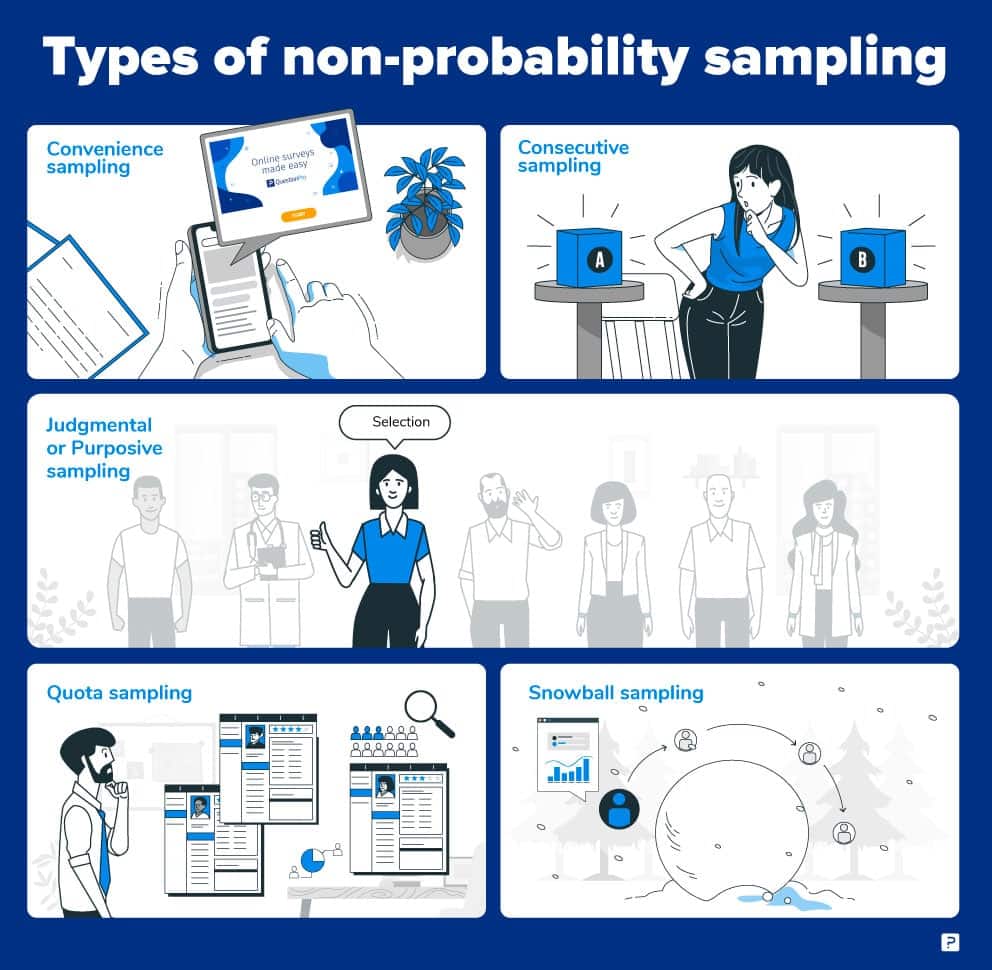
NonProbability Sampling Types, Examples, & Advantages QuestionPro
Advantages of Non-probability Sampling. The following are the advantages of non-probability sampling: It is a more practical and conducive method for researchers that deploy surveys into the real world. Also, non-probability sampling can produce or interpret data in the form of numbers if properly done.
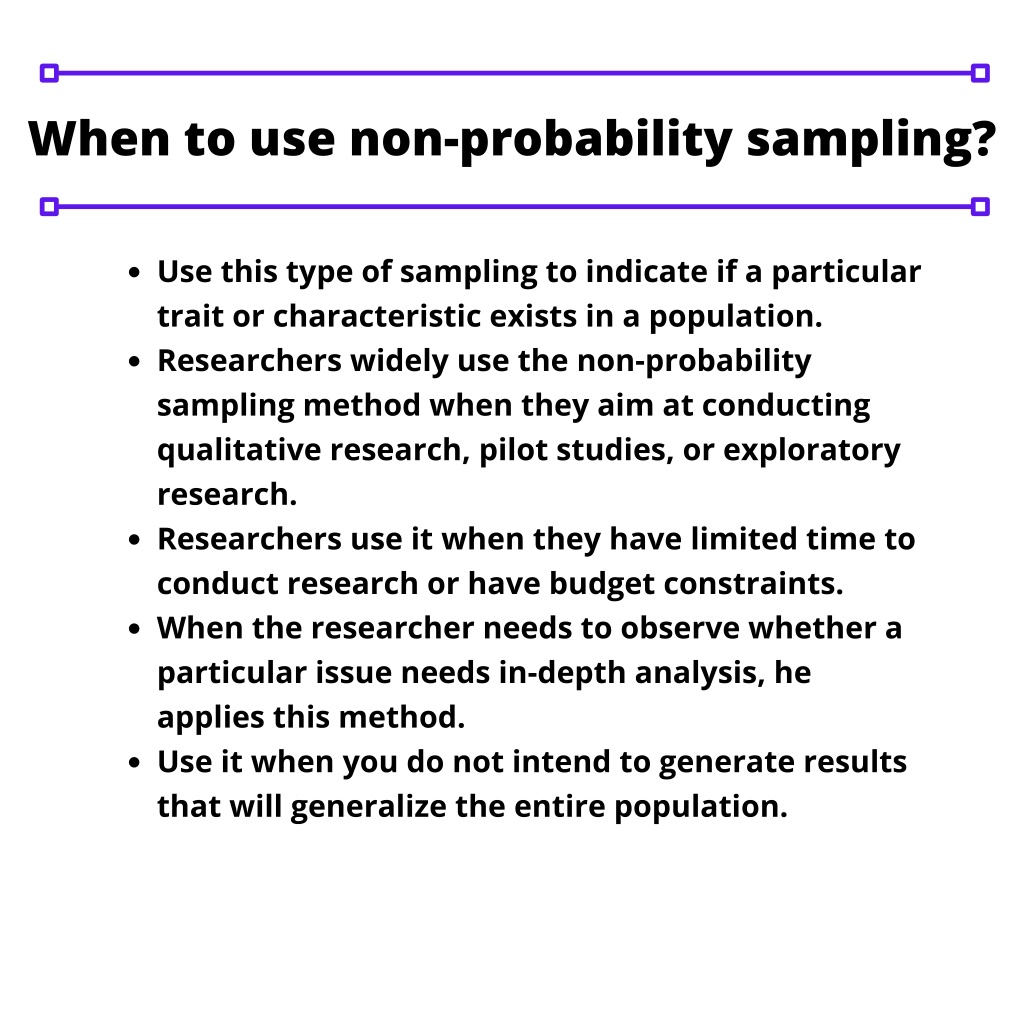
PPT NonProbability sampling PowerPoint Presentation, free download ID10791702
Abstract. Knowledge of sampling methods is essential to design quality research. Critical questions are provided to help researchers choose a sampling method. This article reviews probability and non-probability sampling methods, lists and defines specific sampling techniques, and provides pros and cons for consideration.

Nonprobability Sampling Types, Methods and Examples
Probability Sampling Non-Probability Sampling; Meaning: Probability sampling is a sampling technique, in which the subjects of the population get an equal opportunity to be selected as a representative sample. Nonprobability sampling is a method of sampling wherein, it is not known that which individual from the population will be selected as a.

What Is Non Probability Sampling Definition Examples Qualtrics My XXX Hot Girl
Nonprobability sampling. Nonprobability sampling refers to sampling techniques for which a person's likelihood of being selected for membership in the sample is unknown. Because we don't know the likelihood of selection, with nonprobability samples we don't know whether a sample is likely to represent a larger population. But that's okay.
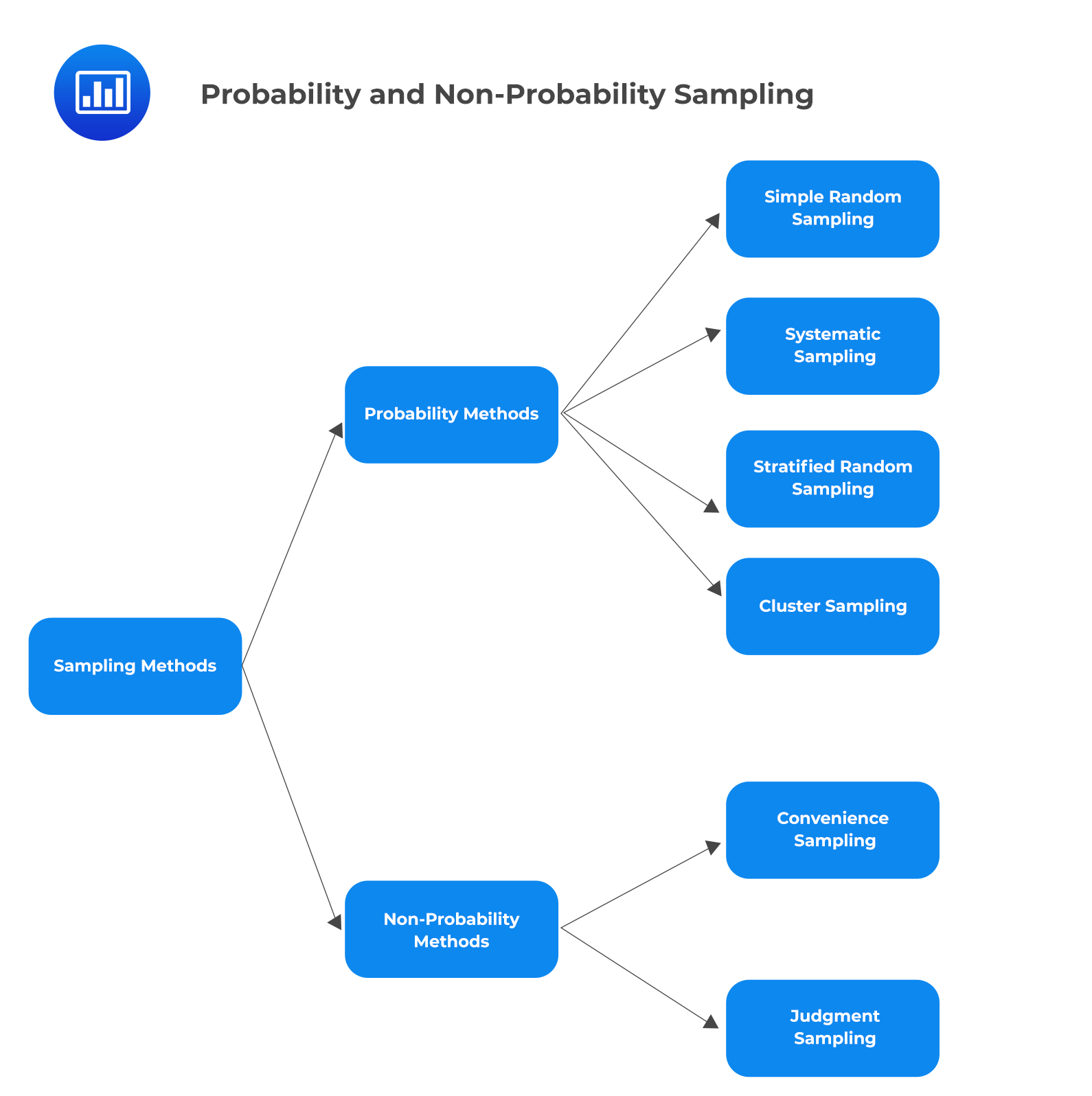
Probability and NonProbability Sampling AnalystPrep CFA® Exam Study Notes
Non-probability sampling is a sampling method that uses non-random criteria like the availability, geographical proximity, or expert knowledge of the individuals you want to research in order to answer a research question. Non-probability sampling is used when the population parameters are either unknown or not possible to individually identify.
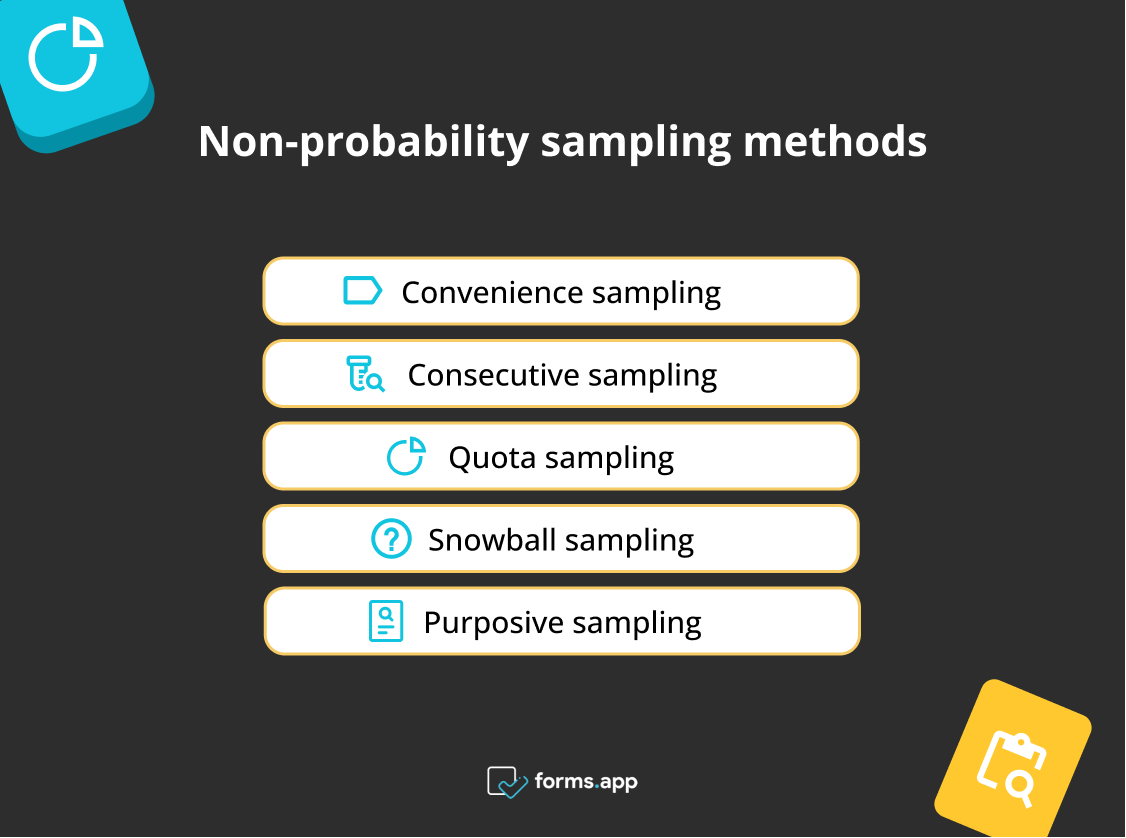
What is nonprobability sampling Definition, types & examples forms.app
3.2 Sampling 3.2.3 Non-probability sampling. Non-probability sampling is a method of selecting units from a population using a subjective (i.e. non-random) method. Since non-probability sampling does not require a complete survey frame, it is a fast, easy and inexpensive way of obtaining data. However, in order to draw conclusions about the.

Nonprobability Sampling Techniques GM Lectures YouTube
Non-probability sampling method. Convenience sampling. Although it is a non-probability sampling method, it is the most applicable and widely used method in clinical research. In this method, the investigators enroll subjects according to their availability and accessibility. Therefore, this method is quick, inexpensive, and convenient.

Sampling for research Non probability sampling techniques Fundamentals YouTube
Non-Probability Sampling. In non-probability sampling (also known as non-random sampling) not all members of the population have a chance to participate in the study. In other words, this method is based on non-random selection criteria. This is contrary to probability sampling, where each member of the population has a known, non-zero chance.
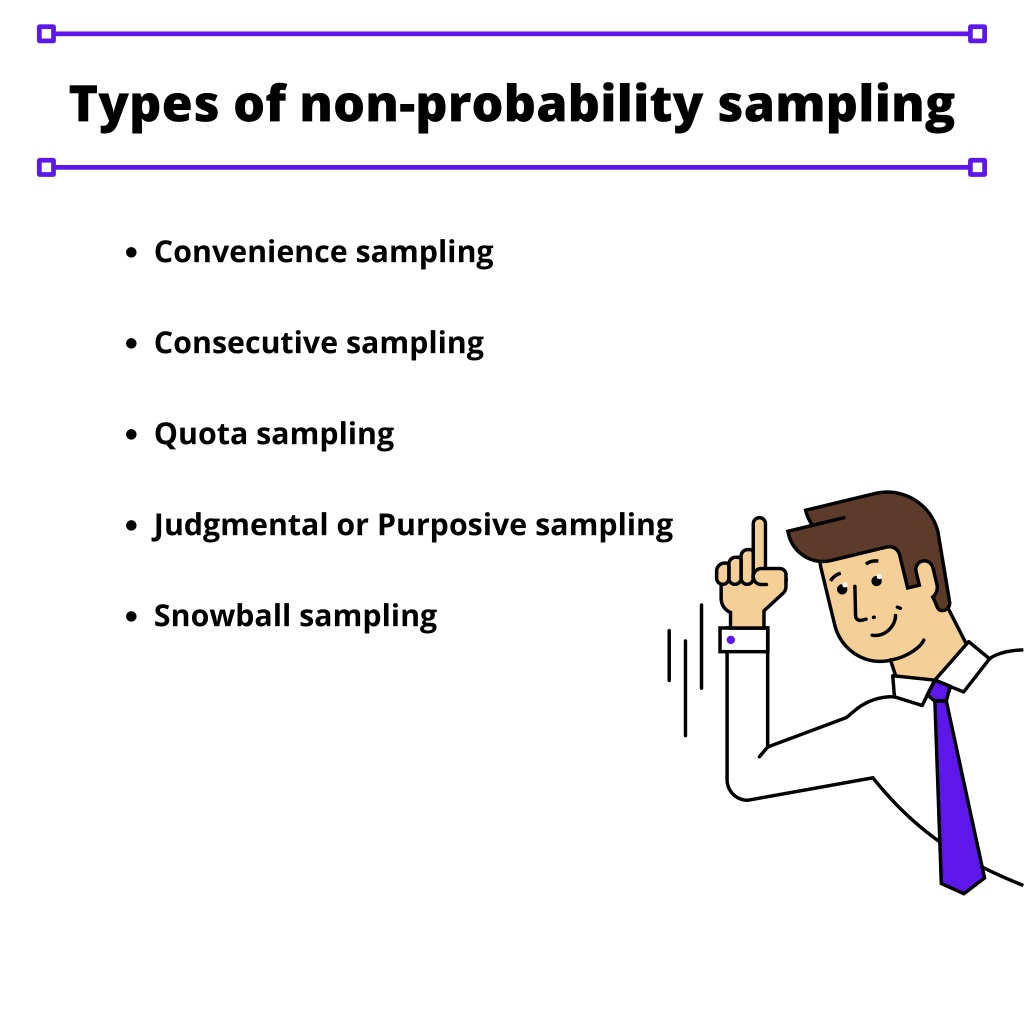
PPT NonProbability sampling PowerPoint Presentation, free download ID10791702
Examples of Non-probability Sampling. Convenience Sampling: In this type of sampling, participants are chosen because they are easy to reach or are readily available. For example, a researcher may choose to survey the first 100 people who enter a shopping mall. Quota Sampling: Quota sampling is a type of non-probability sampling in which.

Nonprobability sampling in research Concepts Hacked
Non-probability sampling (sometimes nonprobability sampling) is a branch of sample selection that uses non-random ways to select a group of people to participate in research. Unlike probability sampling and its methods, non-probability sampling doesn't focus on accurately representing all members of a large population within a smaller sample.
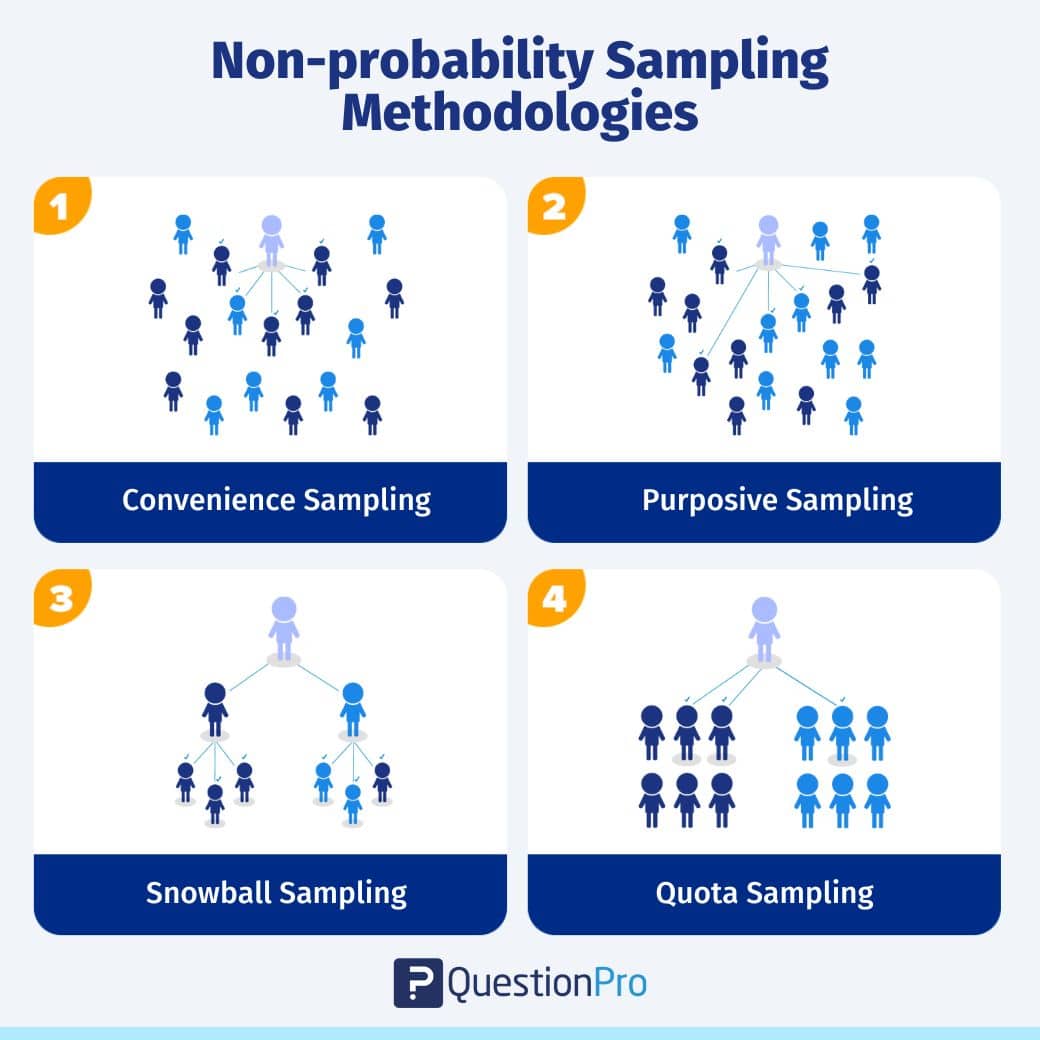
Sample Definition, Types, Formula & Examples QuestionPro
Nonprobability sampling. Sampling is the use of a subset of the population to represent the whole population or to inform about (social) processes that are meaningful beyond the particular cases, individuals or sites studied. Probability sampling, or random sampling, is a sampling technique in which the probability of getting any particular.